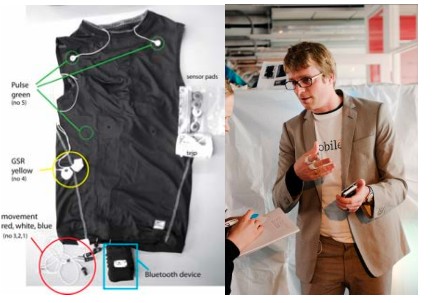Future of Personal Informatics Design
Gary Wolf
April 12, 2010
 Over the weekend some of the most interesting designers working in the field of personal informatics gathered in Atlanta in advance of the ACM conference on human-computer interaction. At a workshop called “Know Thyself: Monitoring and Reflecting on Facets of One’s Life,” they presented research proposals and tentative conclusions about the future of personal informatics design. I browsed the paper proposals, and was struck by the difficulty of the problems the designers were taking on.
Over the weekend some of the most interesting designers working in the field of personal informatics gathered in Atlanta in advance of the ACM conference on human-computer interaction. At a workshop called “Know Thyself: Monitoring and Reflecting on Facets of One’s Life,” they presented research proposals and tentative conclusions about the future of personal informatics design. I browsed the paper proposals, and was struck by the difficulty of the problems the designers were taking on.
The conference was organized by Ian Li, who has also compiled an excellent catalog of self-tracking resources on his Personal Informatics home page. One of the issues that I was glad to see the designers thinking hard about was the challenge of using quantitative data for qualitative reflection. From a paper by Pedro Sanches, et.al.:
When designing Affective Health, a mobile stress management tool using biosensors, we gradually understood how severely limited inferences can be when we move from laboratory situations to everyday usage. We also came to understand the strong connection between our subjectively perceived resources for dealing with stress and healing. Therefore, rather than employing a diagnose-and-treat design model, we propose that designers empower users to make their own reflections and interpretations of their own bio-sensor data. We show how this can be done through encouraging reflection, alternative interpretations and active appropriation of biosensor data – avoiding a reductionist, sometime erroneous, mediation of automatic interpretation from bodily data to emotion models or, in this case, stress diagnosis.
A full list of presentation materials, with links to this paper and others, is here.


